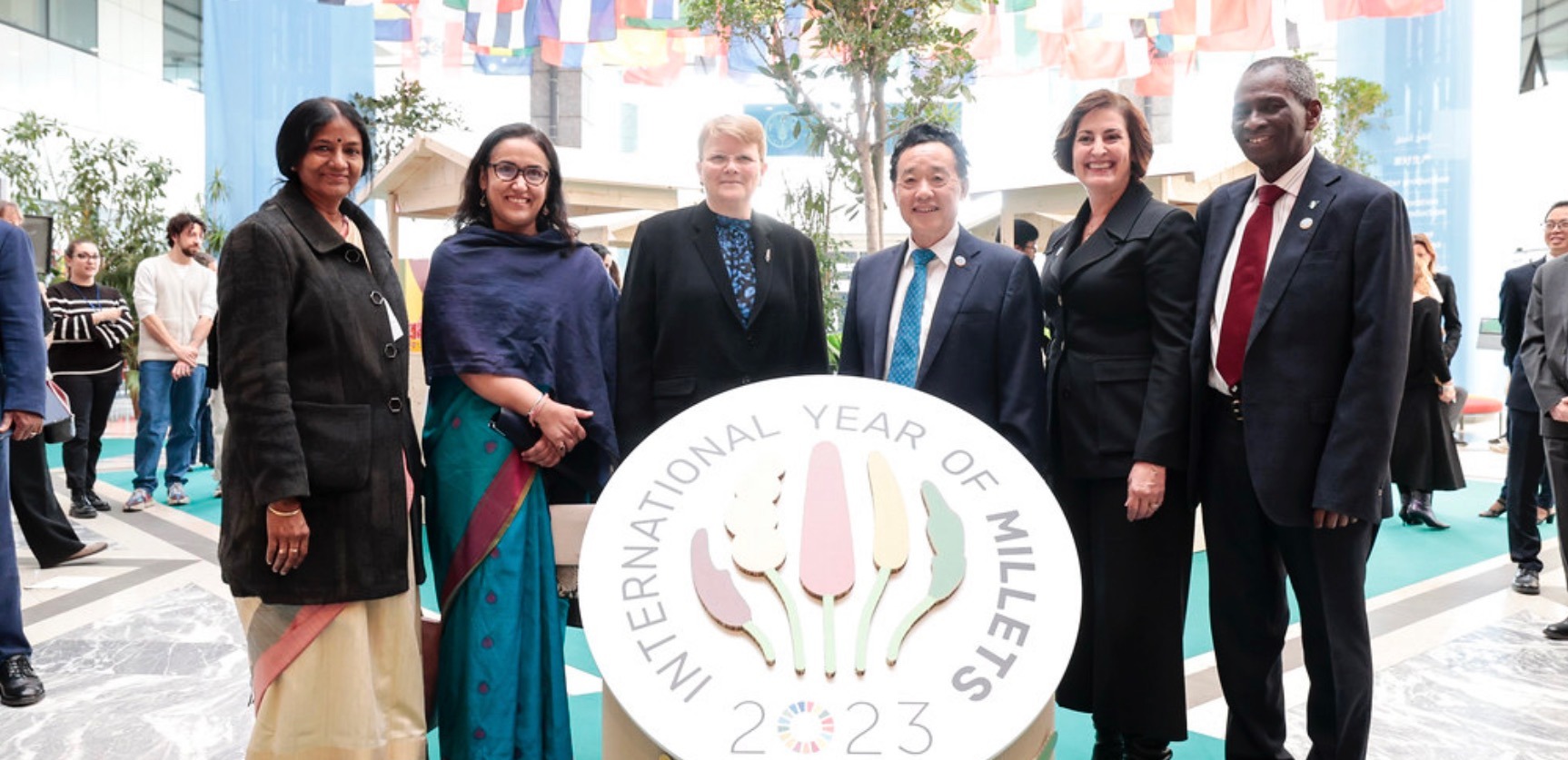Investing in the "super-powers" of millets to boost their contribution to global food security

©FAO
Rome - The Director-General of the Food and Agriculture Organization of the United Nations (FAO), QU Dongyu, today called for investments to tap into the potential of millets, a highly nutritious and resilient alternative to staple grains that can play a crucial role in ensuring global food security.
Qu was addressing the closing ceremony for the International Year of Millets 2023 (IYM2023) at FAO's headquarters in Rome.
The United Nations General Assembly declared 2023 the International Year of Millets as a means of raising awareness about the nutritional and health benefits of millets and their ability to be cultivated in adverse and changing climatic conditions.
“This International Year has helped us rediscover the many reasons these crops should be in our fields, in our markets, and on our tables,” said Qu.
Millets encompass a diverse group of cereals including pearl, proso, foxtail, barnyard, little, kodo, browntop, finger and Guinea millets, as well as fonio, sorghum and teff. They were among the first domesticated plants and remain traditional staple crops for millions in Sub-Saharan Africa and South and East Asia, including Indigenous Peoples.
Millets can be commercially grown in many countries that currently rely on the imports of wheat and other cereal grains, offering a highly nutritious alternative to these staple grains.
They are rich in healthy minerals, vitamins, antioxidants, and protein and are gluten-free. Another one of their so-called "super-powers" is their remarkable ability to withstand drought, heat, and poor soil fertility, making them more resilient to climate and natural resource pressures.
Moreover, since they are low-input crops, their cultivation contributes to sustainable agricultural practices, conserving water resources, and reducing greenhouse gas emissions.
"At FAO, we strongly advocate for and support Members for the transformation of global agrifood systems to be more efficient, more inclusive, more resilient, and more sustainable. This includes unlocking the untapped potential of crops such as millets," Qu told the closing ceremony.
Investments needed
Growing global demand for nutritious and sustainable food options has created economic opportunities for millet producers, processors, and traders.
However, more should be done to exploit this potential.
For instance, there's a need for investments in the research and development of millets value chains – from breeding superior varieties, through cultivating them sustainably, to processing and marketing them all year round - as well as investments designed to preserve the diversity of millets, Qu said.
The Director-General called on partners to strengthen their support for the sustainable production of millets and for developing dynamic markets, and to keep up the momentum by continuing to promote their rich heritage.
Year of activities
As the UN agency that took the lead in celebrating IYM2023, FAO organized several activities designed to encourage the production and consumption of millets.
Such activities include a Global Chefs Challenge, in which 250 chefs shared their millet-based recipes on social media. Selected recipes from the competition, such as millet tortillas with mushroom stuffing, or kodo millet risotto with barnyard millet crips, were then featured in a book that also offers helpful tips for preparing and cooking millets.
FAO has also published a background document on millets and their current challenges and opportunities entitled Unleashing the Potential of Millets. The document includes a synopsis of the current status of millets worldwide and was created to inspire policymakers, farmers, civil society, opinion leaders, research and development agents, as well as the general public, to reconsider the role of millets in diversified and nutritious diets.
According to the IYM secretariat, over 100 events on millets were organized in 35 countries to mark IYM2023.
